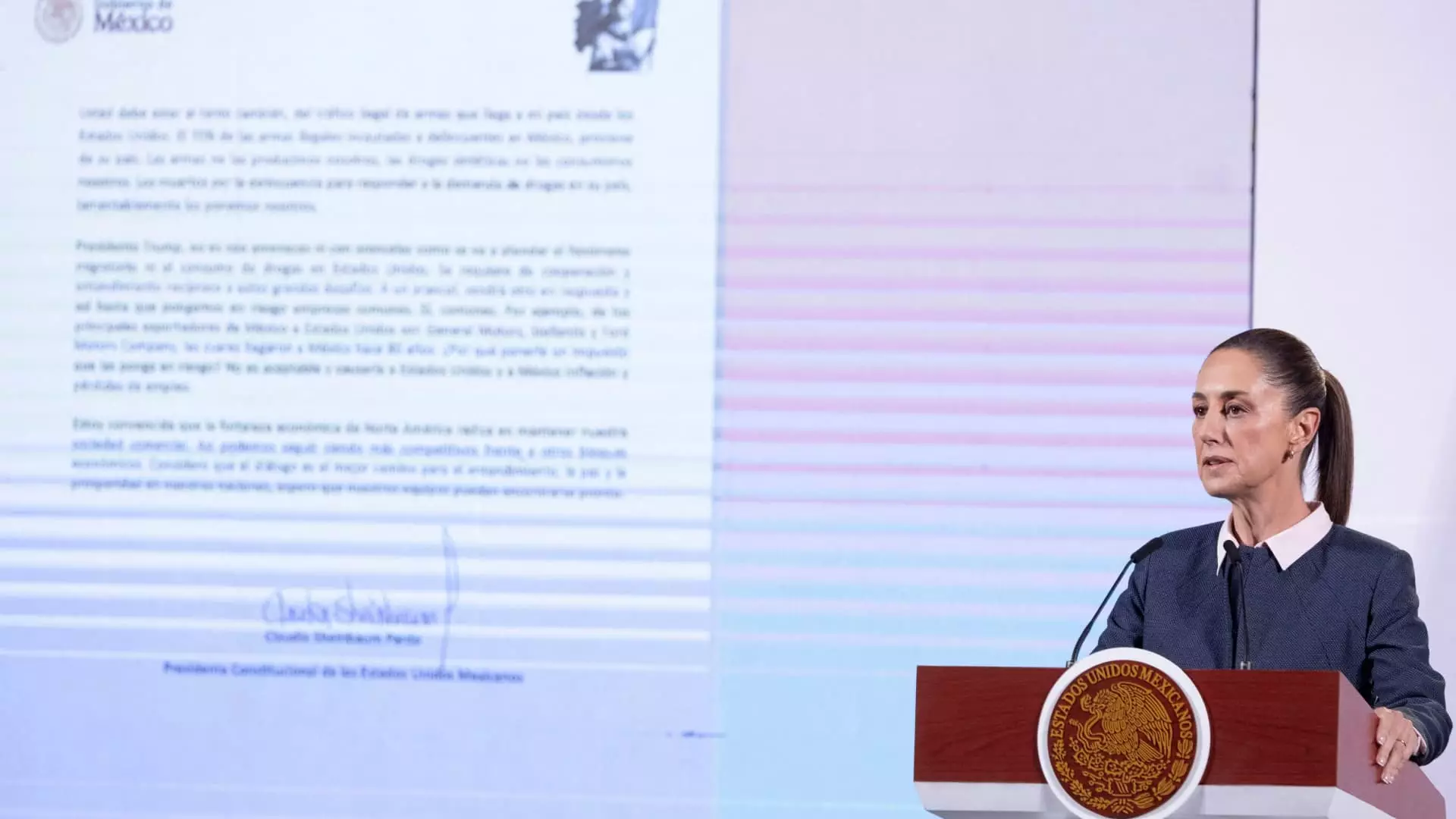The economic landscape of North America finds itself anew in turbulent waters, as the looming threats of tariffs proposed by the U.S. President-elect have ignited a fiery response from Mexico’s leadership. Claudia Sheinbaum, the President of Mexico, recently expressed the country’s intention to enact retaliatory measures should the U.S. decide to implement a broad 25% tariff on Mexican goods. This reflects not only a defensive posture but also underscores the fragile intertwining of both nations’ economies.
Sheinbaum’s emphatic declaration came during a press briefing, where she stated that the impact of such tariffs could reverberate throughout the U.S. labor landscape, potentially jeopardizing around 400,000 jobs. This statement emphasizes how interconnected the U.S. and Mexican economies are, with many U.S. companies heavily reliant on imports from Mexico. Furthermore, the proposed tariffs could see consumer prices surge, directly affecting American households. Sheinbaum warned that with tariffs imposed on Mexican goods, Mexico would reciprocate, sparking a potential trade war that could escalate beyond mere economic implications and destabilize diplomatic relations.
Marcelo Ebrard, the Mexican Economy Minister, elaborated on these threats, arguing that a punitive stance on trade not only hinders economic growth but would also affect U.S. companies functioning within Mexican borders. He pointed out that automakers like Ford, General Motors, and Stellantis could face crippling financial repercussions if tariffs are enacted, given the automotive sector’s fundamental role in cross-border trade. Ebrard’s analysis highlighted that the majority of pickup trucks sold in the U.S. are produced in Mexico, predicting an average price hike of approximately $3,000, which could alienate even Trump’s primary voter base in rural America.
In a conversation that transpired between Sheinbaum and Trump, the discussion traversed various pressing issues, including immigration and drug trafficking. Trump’s assertion that tariffs would remain until the flow of drugs and migrants was curbed in the U.S. indicates a policy approach aimed at leveraging economic strategies to enforce ideological stances. Some analysts speculate that Trump’s tariff threats might not reflect genuine economic policy but rather a tactic in negotiation, suggesting that the underlying goals of these tariffs may extend beyond mere trade.
This assertion points to a growing need to analyze the motivations behind such economic maneuvers. David Kohl, chief economist at Julius Baer, indicated that the lack of a clear trade rationale for the proposed tariffs raises concerns about their legitimacy—suggesting they may serve as bargaining chips rather than be grounded in a coherent economic strategy.
The automotive industry represents a crucial segment of Mexico’s economy, and recent assessments reveal that the impact of tariffs could effectively obliterate profit margins for major automakers in Detroit. Analysts from Barclays emphasized that the consequences could be more extensive than generally assumed, potentially dismantling established economic frameworks that have come to define North American trade relations.
As Mexico prepares for uncertainty and challenges in trade policies, the Institute of International Finance has warned about the implications of rising protectionism, cautioning that such a stance could erode the already precarious ties between Mexico and the United States. The Mexican automotive industry group AMIA has advocated for preparedness in light of potential tariffs while maintaining vigilance as circumstances evolve.
In the grand narrative of relations under the United States-Mexico-Canada Agreement (USMCA), the evolving dynamics necessitate a reevaluation. With the USMCA due for review in 2026, experts like Katia Goya foresee a demand for wholesale renegotiation to address emerging trade conflict issues, rather than a mere extension of the current agreement.
As trade tensions intensify, it’s evident that retaliatory tariffs could present a significant risk of mutual economic detriment. Progress depends on fostering dialogue to create sustainable economic partnerships rather than exacerbating divisions through protectionist policies. Ebrard’s assertion—emphasizing a cooperative approach toward trade—champions the notion that building bridges always holds greater promise than erecting barriers. Thus, as both nations grapple with these challenges, ensuring collaborative bilateral relations may ultimately serve the interests of not just Mexico and the U.S., but also the wider economic landscape of North America.

